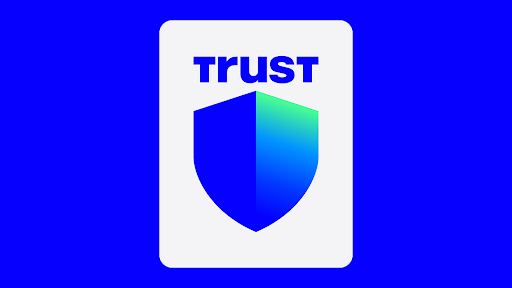So I was fiddling with a bunch of crypto wallets last week—yeah, another late-night rabbit hole—and something felt off about most of them. They either looked way too complicated or, worse, acted like they owned my private keys. Seriously? That’s like handing your car keys to a stranger and hoping they don’t take it for a joyride. Wow!
Then I stumbled back on Trust Wallet. Now, I’m biased, but this app really strikes a chord with anyone who’s juggling multiple cryptocurrencies and wants to keep things secure without turning their phone into a digital fortress. It’s got that neat blend of simplicity and power that’s kinda rare these days. Something about the whole experience just clicks.
Initially, I thought, “Okay, it’s just another wallet app,” but then I realized it’s more like having a Swiss Army knife for your crypto stash. It supports a ton of tokens, which is clutch because I keep dabbling in new projects (some stick, some don’t). Plus, it’s non-custodial, meaning you control your keys—and that’s super important. My instinct said, “This might actually be safe enough to trust with real money.”
Here’s the thing. Trust Wallet’s user interface feels intuitive but doesn’t dumb things down too much. You get access to a built-in dApp browser, which is pretty cool if you’re into decentralized apps without juggling multiple platforms. It’s like having a mini crypto ecosystem right in your pocket.
Hmm… you might wonder, “Is it really secure, though?” Let’s dig into that.
Security in crypto wallets is such a tricky beast. On one hand, you want ironclad protection, but on the other, you don’t want to wrestle with 12-word phrases or hardware devices every time you wanna check your balance. Trust Wallet walks that fine line pretty well. It encrypts your private keys locally—meaning your keys never leave your device—reducing exposure to hacks or phishing attacks.
Okay, so check this out—there’s also an option to back up your wallet with that famous seed phrase. Yeah, it sounds scary and easy to mess up, but if you keep it offline and safe, you’re golden. Plus, Trust Wallet has integrated biometric locks like fingerprint and face recognition on supported phones, giving you a second layer of protection without feeling like you’re entering Fort Knox.
Now, this part bugs me a bit: some people overlook the importance of the dApp browser that comes with Trust Wallet. This feature lets you interact directly with decentralized applications on Ethereum, Binance Smart Chain, and others, without needing to connect through separate browsers or extensions. It’s super handy but also a potential risk vector if you’re careless about which dApps you trust. So yeah, don’t just click on every link—you gotta vet the dApps.
On one hand, the dApp browser is a game-changer for mobile users who want seamless access to DeFi, NFT marketplaces, or games. Though actually, it also means you’re putting a lot of trust in the wallet’s security and the dApps themselves. That’s where user discretion comes in big time.
I’ve tried other wallets before—some big names—and honestly, none matched the fluid experience of Trust Wallet, especially when it comes to speed and responsiveness on mobile. Transactions pop up fast, and it’s easy to switch between coins. The multi-coin support is very very important for me because I’m constantly hopping between Ethereum, Binance Smart Chain, and a few smaller networks.
Oh, and by the way, if you’re into staking or earning rewards, Trust Wallet supports that too. You can stake coins like Tezos or Tron right from the app, which is neat if you want to put your crypto to work without moving it around a lot.
Here’s a quick heads-up though: no wallet is 100% foolproof. I’m not 100% sure if Trust Wallet’s security can withstand every possible attack vector, especially as phishing scams get smarter. But from what I’ve seen and experienced, it’s one of the safest and most user-friendly options out there for mobile users.
Check this out—if you want to dive deeper or download the official app, you can find it here. It’s the legit source, so no shady links or fake downloads.

Thinking about the bigger picture, Trust Wallet is not just a tool—it’s kind of a gateway into the decentralized world for everyday users. It lowers the barrier to entry without sacrificing too much on security or functionality. That’s pretty rare.
That said, it’s easy to get overwhelmed by the options and features. At times, I catch myself wondering if I’m using it to its full potential or just scratching the surface. But maybe that’s the beauty of it—there’s always something new to explore, whether it’s a new token, a fresh DeFi platform, or just a slick new way to stake your assets.
Whoa! So yeah, if you’re on the hunt for a secure, easy-to-use multi-cryptocurrency wallet that fits right in your pocket, Trust Wallet deserves a serious look. Just remember to keep your seed phrase offline and think twice before interacting with random dApps. The crypto world is wild, but with tools like this, it doesn’t have to be scary.
Frequently Asked Questions
Is Trust Wallet really secure for storing crypto?
Trust Wallet stores your private keys locally on your device and offers biometric locks, which enhances security. However, like any software wallet, it’s only as secure as your device and backup practices. Always keep your seed phrase offline and avoid suspicious dApps.
Can I manage multiple cryptocurrencies in Trust Wallet?
Absolutely! Trust Wallet supports a wide range of tokens across Ethereum, Binance Smart Chain, and other blockchains, making it perfect for multi-coin holders.
What’s the advantage of the dApp browser in Trust Wallet?
The built-in dApp browser lets you interact directly with decentralized applications like DeFi platforms and NFT marketplaces without leaving the wallet. This convenience is great for mobile users but requires caution to avoid malicious apps.


